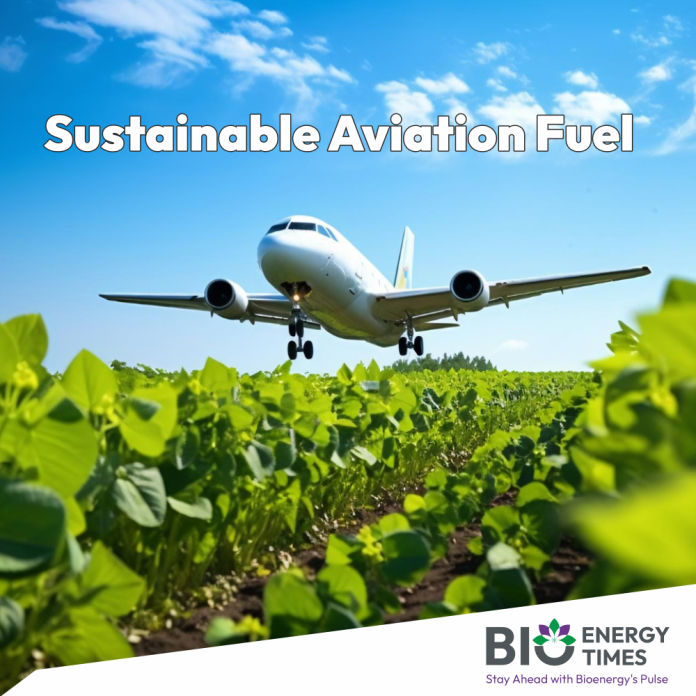In a push to support the aviation industry’s efforts to reduce carbon emissions, the Thai government and businesses are focusing on Sustainable Aviation Fuel (SAF). Two of the country’s leading oil companies have partnered with Japanese firms to expand raw material supplies and sales channels, aiming to increase SAF production, reports Reccessary.
The Thai Board of Investment (BOI) recently introduced a tax incentive program to encourage investment in aviation biofuels. Under this initiative, companies producing SAF from agricultural waste will receive an eight-year corporate tax exemption. Companies developing bioenergy industrial zones will be exempt from corporate tax for five years, while those blending SAF with conventional jet fuel will benefit from a three-year tax exemption. These measures align with the International Civil Aviation Organization’s (ICAO) target of achieving net-zero carbon emissions by 2050. Additionally, by 2026, Thai airlines will be required to use a minimum of 1% SAF blend in their fuel supply.
State-owned oil company PTT began commercial SAF production in January, with an annual output of 6 million liters—enough to support 2,000 flight cycles for medium-sized aircraft traveling between 2,000 to 3,000 kilometers. PTT has also signed an agreement with Japan’s Sojitz Corporation to jointly develop aviation biofuels.
Bangchak Corporation, another major energy firm, is set to begin SAF production in June at its facility near Bangkok. The plant will have a daily production capacity of 1 million litres. To expand its reach, Bangchak has signed long-term procurement agreements with Japan’s Sumitomo Corporation and Cosmo Oil, the latter of which has committed to a contract lasting up to 10 years.
According to estimates by the Bank of Ayudhya (Krungsri), air travel to and from Thailand is expected to grow by 10% to 20% by 2026, increasing demand for SAF. However, supply remains limited, and production costs are high, making SAF three to five times more expensive than conventional fossil jet fuel.
Beyond Thailand, other Southeast Asian countries are also looking to become key SAF suppliers. A report from U.S. aircraft manufacturer Boeing highlights the region’s abundant biomass resources, estimating an annual SAF production capacity of 45.7 million tons—approximately 12% of global supply. The report specifically identifies Indonesia, Thailand, Vietnam, Malaysia, and the Philippines as major contributors to the growing SAF market.














